
Southampton Stonewall Lecture 2014 (Podcast Available)
February 20, 2014
by Carla Barrett
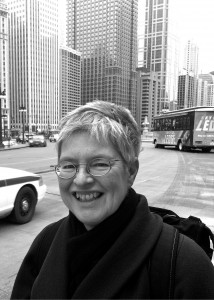 As part of LGBT History Month, last week the University of Southampton hosted the 3rd annual Southampton Stonewall Lecture. Each year this lecture is devoted to LGBT or queer history. This year, Professor Laura Doan gave a fascinating talk entitled ‘On the Entanglements of Queer Memory and History – the Case of Alan Turing’. Her talk centred around collective memory (or the cultural phenomenon of what groups remember); and she used the case of Alan Turing as a means of considering the tensions between collective memory and academic history.
As part of LGBT History Month, last week the University of Southampton hosted the 3rd annual Southampton Stonewall Lecture. Each year this lecture is devoted to LGBT or queer history. This year, Professor Laura Doan gave a fascinating talk entitled ‘On the Entanglements of Queer Memory and History – the Case of Alan Turing’. Her talk centred around collective memory (or the cultural phenomenon of what groups remember); and she used the case of Alan Turing as a means of considering the tensions between collective memory and academic history.
I write this post as a geographer, not a historian. My own academic work considers how contemporary uses of space, and ways of living in the home, might be queer. In other words, I am interested in contemporary queer spatialities. What I found most interesting about Doan’s talk was the attention she drew to queer temporalities. This is a relatively new field in queer studies, interested in putting queer people back into history. One of the key questions that Doan posed in her talk was how do you (or can you) historicise contemporary identities? She noted that today we understand sexuality in terms of possessing an identity, whereas this was not necessarily the case at the time that Alan Turing was living. As such, Doan pointed out that although describing Alan Turing as ‘gay’ might help us to understand the past, it may also fail to really capture how he would have experienced the world.
To download a podcast of Professor Doan’s lecture, please click here.
LGBT History Month events at the University of Southampton
February 6, 2014
by Carla Barrett

February is LGBT History Month, and the theme for 2014 is music. To celebrate, there are a number of events planned at the University of Southampton, including the annual Stonewall Lecture and the ‘“Coming Out” to Gay and Lesbian History’ Study Day. Find out more about the range of events planned below:
Saturday 8th February
‘“Coming Out” to Gay and Lesbian History’ Study Day
10am-4pm, building 85, Highfield campus
A study day run by the university to explore the field of lesbian and gay history. To find out more, click here.
Wednesday 12th February
Amnesty International Society make origami roses
4pm, building 58 room 1039, Highfield campus
Making origami roses with ‘Love is a human right’ written on them to be handed out on Valentine’s Day around the concourse.
Thursday 13th February
Southampton Stonewall Lecture 2014
6pm, Avenue Campus
‘On the Entanglements of Queer Memory and History – The Case of Alan Turing’ by Professor Laura Doan. An annual lecture dedicated to LGBT history. To find out more, click here.
Friday 14th February
Amnesty International Stall
2.30pm-5.30pm, the Concourse, Highfield campus
Origami roses and cake sale to raise awareness of LGBT issues around the world.
Wednesday 26th February
Open Mic Night for LGBT History Month
7pm, The Bridge Bar, Highfield Campus
An evening of music to celebrate the LGBT community. Organised jointly by SUSU LGBT, Amnesty International Society, and the E&D forum. To find out more, click here.
Queen and Country: Same Sex Desire in the British Armed Forces, 1939-45
January 30, 2014
by Carla Barrett
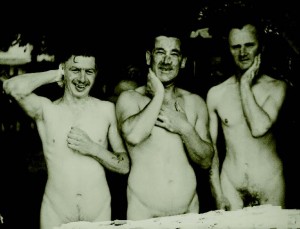 As part of LGBT History Month, the University of Winchester is hosting a guest seminar with Dr Emma Vickers (Liverpool John Moores University) entitled ‘Queen and Country: Same Sex Desire in the British Armed Forces, 1939-45’.
As part of LGBT History Month, the University of Winchester is hosting a guest seminar with Dr Emma Vickers (Liverpool John Moores University) entitled ‘Queen and Country: Same Sex Desire in the British Armed Forces, 1939-45’.
The event is free and open to all, and will be followed by a small wine reception.
It will be held in room 16, Medecroft building, University of Winchester. Unfortunately, due to the speaker’s illness, this seminar is being rescheduled. To keep up to date, please see the event’s page on Facebook:
LGBTQ Lives Research – New PhD Studentship opportunities, University of Brighton
January 28, 2014
by Laurence Georgin
New PhD Studentship opportunities: The University of Brighton is currently inviting prospective doctoral students who are interested in applying for a studentship in the Arts and Humanities with a focus on LGBTQ sexualities and gender research to contact them about the TECHNE partnership.
The LGBTQ Lives Research Hub offers an opportunity to work with scholars specialising in gender and sexualities research across a broad range of subject areas, including:
- Cultural Geography
- Media Studies
- Cultural Studies and Popular Culture
- Digital economy areas related to gender and sexuality
- Drama and sexuality
- Early modern sexuality and gender
- Literature and Film
Please send a short summary of your proposed project (500 words) and details of your qualifications to LGBTQ@brighton.ac.uk as soon as possible. The Research Hub will contact applicants to help liaise with potential supervisors and guide you in the submission of a formal application. The deadline for formal applications is the 19th February 2014. For further information download the flyer or go to http://arts.brighton.ac.uk/projects/lgbt/news/new-phd-studentship-opportunities
“Coming Out” to Gay and Lesbian History’ Study Day, Saturday 8 February 2014, 10am-4pm, bldg 85, Highfield campus
January 21, 2014
by Laurence Georgin
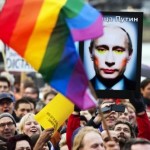 This annual LGBT History study day is this year held as a Lifelong-Learning event. We welcome anyone interested in LGBT History to come and explore an exciting and varied programme.
This annual LGBT History study day is this year held as a Lifelong-Learning event. We welcome anyone interested in LGBT History to come and explore an exciting and varied programme.
We will be holding this one-day cultural event on Saturday 08 February consisting of a series of short talks led by experts from within the University. This thought provoking and inspiring conference will provide you with the opportunity to learn and engage in discussion about gay and lesbian history from academics of international distinction.
This unusual study day is an opportunity for you to explore and discuss the new field of lesbian and gay history. Our aim is to look at personal case studies from the past thousand years, from Britain and Europe, and particularly to use a rich variety of historical sources to illustrate the challenges of finding and understanding homosexuals in the past.
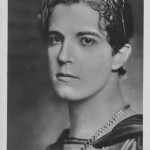 In a range of talks, by experts from the History department and outside speakers, we will consider the changing attitudes to same-sex activity – whether tolerance or discrimination – but also try to look at the subject from the perspective of the lesbian or gay man. Topics range from medieval Britain through to modern central Europe, from religious attitudes and lesbian sex, through to male homosexuality under totalitarian regimes. By the end of the day you will have learnt about the richness of this ‘hidden history’ and the problems the historian faces when researching it.
In a range of talks, by experts from the History department and outside speakers, we will consider the changing attitudes to same-sex activity – whether tolerance or discrimination – but also try to look at the subject from the perspective of the lesbian or gay man. Topics range from medieval Britain through to modern central Europe, from religious attitudes and lesbian sex, through to male homosexuality under totalitarian regimes. By the end of the day you will have learnt about the richness of this ‘hidden history’ and the problems the historian faces when researching it.
LGBT History Study Day 2014 Programme
Charges
£31 full rate
£21 loyalty rate (Harbour Lights Members, Friends of Parkes, English Teachers Network, university staff and alumni)
£11 discount rate (students/sixth form & college students and those in receipt of income-based Job Seeker’s Allowance, Income Support, Working Tax Credit, Council Tax or Housing Benefit)
All prices include lunch and refreshments
Payment
To book your place, please log into our new secure Online Store to complete the application form and make payment.
Contact for more information
Name: Lifelong Learning Team
E-mail: lifelonglearning@southampton.ac.uk
Find out about other Lifelong Learning events at www.southampton.ac.uk/lifelonglearning
Southampton Stonewall Lecture 2014, 13 February 6pm: On the Entanglements of Queer Memory and History – The Case of Alan Turing
January 14, 2014
by Laurence Georgin
Part of Lesbian, Gay, Bisexual and Transgender History Month
The Southampton Stonewall Lecture speaker in 2014 is Professor Laura Doan from the University of Manchester. 
The lecture will take place at the Avenue campus on 13 February at 6pm and will be chaired by Professor Mark Cornwall.
For LGBT and queer-identified people aware of Alan Turing’s sexuality, his arrest in 1952 on charges of “gross indecency” and his barbaric punishment (chemical castration in lieu of prison), the spaces of commemoration take on added resonance, an encounter with the past which historians associate with memory. Not individual memory, but collective memory, the social phenomenon or cultural dimension of what groups remember. In this lecture Professor Laura Doan will use Turing, recently pardoned by the British government, as a case study to prise memory, time and history apart, while also leaving them intertwined and messy.
The Southampton Stonewall Lecture is an annual lecture at the University of Southampton devoted to the history of homosexuality or LGBT history. The purpose of the lecture is to educate the present about the past; to showcase thinking and research about LGBT history; and to enhance the University of Southampton’s remit of promoting sexual diversity in the regional community.
The inaugural Stonewall Lecture was given in March 2012 by Angela Mason CBE, former executive director of the Stonewall charity. Her lecture, drawing a large audience, was entitled: ‘Twenty-Five Years On: The Fight for LGBT Rights in the UK’. Last years lecture ‘Gay Culture in Postwar New York: Community Creation and Conflict‘ was given by Professor George Chauncey (Yale). You will find video and interview re the lectures by following the links above.
To find out more about Professor Doan please visit her online profile.
There will be a charity collection for Stonewall at the end of the lecture.
Tea and coffee will be served in the North Corridor at 5:30pm and a drinks reception will be held following the lecture.
Registration: RSVP before 6 February
If you wish to attend this event please email Tracy Storey at tps@southampton.ac.uk to reserve a place.
Lesbian Immigration Support
December 11, 2013
by Laurence Georgin
In November 2013 I, together with the Lesbian Immigration Support Group (LISG) Manchester, were asked to facilitate a workshop at Sapphormation, as part of ESRC’s social science festival. Based at Sydney street Cafe (a coffee shop for LGBT groups in Manchester), this was the perfect opportunity to engage with lesbian, bisexual and ‘women who love women’ on issues relating to lesbian asylum seekers in the UK. This theme is particularly timely given the recent publicity on the treatment of LGBT people in Russia and in parts of Africa. Homosexuality and same sex relationships is criminalised in 78 countries and is punished by the death penalty in seven countries (1), yet despite growing human rights concerns, these debates still remains on the periphery of academic and policy discussions on forced migration and sexuality studies (Itaborahy, 2012).
Seeking international protection on the grounds of your sexuality is a particularly tense and complex process given that homosexuality is not explicitly included in the 1951 Refugee Convention. As a consequence, concerns have been raised for a number of years regarding whether lesbian, gay men, bisexual and transgender individuals are able to access the international protection they need (Kendall, 2003, Hathaway and Popjoy, 2012, Millbank, 2012, Stuart, 2012).
To begin our session, Annie (2) (a lesbian asylum seeker from Jamaica) began the workshop and spoke of her experiences ‘back home’, her struggles to gain refugee status and of her recent homophobic attack in Manchester. I then talked about my recent PhD research which examined the difficulties lesbians face navigating the legal obstacles associated with the UK asylum process. With the help of LISG members who facilitated discussions, the group considered the problematic nature of evidencing sexuality as part of asylum claims including: what is classed as evidence? how is a ‘true’ sexuality ascertained? And what are the consequences of having this private information in the public domain?
Feedback received after the workshop illustrated how the attendees were both interested and perplexed at the demands of the UK asylum process and how this had impacted on lesbian asylum seekers. This workshop provided an excellent platform for the women from LISG to recount their own stories and to be heard. An asylum seeker from LISG said afterwards: “I have waited so long to talk to people about this, people should know what we face”. I hope more opportunities like this come up in the future. Thank you Sapphormation for an excellent day.
Claire Bennett
(1) Iran, northern States in Nigeria, Mauritania, Saudi Arabia, southern parts of Somalia, Sudan, and Yemen
(2) Anonymised name
References
HATHAWAY, J. & POPJOY, J. 2012. Queer Cases Make Bad Law. Internation Law and Politics, 44, 315-389.
ITABORAHY, L. P. 2012. State-Sponsored Homophobia: A world survey of laws criminalising same-sex sexual acts between consenting adults. Brussels: International Lesbian, Gay, Bisexual and Trans Association (ILGA).
KENDALL, C. N. 2003. Lesbian and Gay Refugees in Australia: Now that ‘Acting Discreetly’ is no Longer an Option, will Equality be Forthcoming? International Journal of Refugee Law,, 15, 715-749.
MILLBANK, J. 2012. The Right of Lesbians and Gay Men to Live Freely and Openly on Equal Terms Is Not Bad Law: A Reply to Hathaway and Popjoy. New York University Journal of International Law and Politics, 44, 497-527.
STUART, A. 2012. Over Not Out – Refreshed. London.
For further information please contact Claire Bennett:
- Twitter: Claire Bennett – @BennClaire
- The Lesbian Immigration Support Group – @lisg_manchester
- Sappormation – @Sapphormation
For a recent podcast on Claire Bennett’s research with lesbian asylum seekers see:
Claire Bennett
Senior Research Assistant at the Centre for Population Change (CPC) (working on a joint ESRC project with COMPAS, University of Oxford) Talks of a recent workshop with the Lesbian Immigration Support Group (LISG) on her PhD topic ‘Sexuality and Asylum: The Perspectives of Lesbian Asylum Seekers in the UK,’ November 2013
Staff link:
http://cpc.geodata.soton.ac.uk/people/Research%20Fellows/?link=Clare%20Bennett.html
Also a Visiting Scholar at The Weeks Centre for Social and Policy Research, LSBU
Take part in a study on the role of sexual orientation in modulating spatial attention
December 4, 2013
by Laurence Georgin
Hi,
My name is Stuart I am an MSc Research Student from the University of Southampton psychology department, working as a research assistant for Dr Wendy Adams and PhD student Nicholas Hedger.
I am requesting your participation in a study that investigates the role of sexual orientation in modulating spatial attention. We are also investigating whether stimuli (erotic images) presented under the threshold of awareness elicit physiological responses (e.g. skin conductance responses, heart rate) .This study will require you to complete a questionnaire about your sexual orientation, before viewing a series of images presented via a mirror stereoscope. You will firstly be asked to indicate any changes in your perception by pressing buttons on a keyboard. You will then be asked to indicate your perception of briefly presented stimuli. Throughout the procedure, electrodes will be attached to your fingers, ankle and forearm to allow us to measure physiological responses to the stimuli. All data will be collected by either Stuart Hyde (an MSc student) or Nick Hedger (a psychology PhD student)
The study will last up to 80 minutes and you will receive £7.50 for your participation.
Please email me at sdh1g09@soton.ac.uk or Nick at naah1g08@soton.ac.uk if you are interested in taking part. We appreciate your time!
Stuart Hyde
MSc Research Student, Psychology, University of Southampton
How To Survive A Plague, Harbourlights cinema, this Sunday!
November 29, 2013
by Laurence Georgin
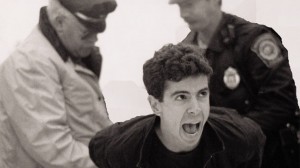 How To Survive A Plague is the Academy Award nominated documentary from David France, which chronicles the history of two pioneering LGBT coalitions—ACT UP and TAG (Treatment Action Group)—whose activism and innovation turned AIDS from a death sentence into a manageable condition.
How To Survive A Plague is the Academy Award nominated documentary from David France, which chronicles the history of two pioneering LGBT coalitions—ACT UP and TAG (Treatment Action Group)—whose activism and innovation turned AIDS from a death sentence into a manageable condition.
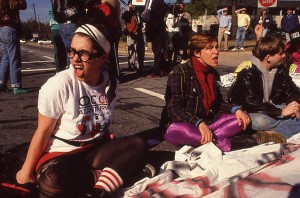
Despite having no scientific training, these self-made activists infiltrated the pharmaceutical industry and helped identify promising new drugs, moving them from experimental trials to patients in record time. Their actions saved millions of lives and this is their story.
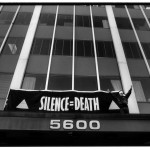
The film is screening at Harbour Lights Picturehouse, Sunday 1 December, 4.00pm . Don’t miss the exclusive one-off screening of this much lauded film. Tickets available here: definitefraudstart “ow.ly”definitefraudend http://ow.ly/rgXFE
Download the e-flyer and share it around with people who might be interested!
Gay’s the Word, London’s Independent Gay & Lesbian Bookshop
October 30, 2013
by Carla Barrett
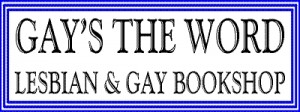 “Where can I buy literature on the LGBT theme?”
“Where can I buy literature on the LGBT theme?”
GAY’S THE WORD, London’s Independent Comprehensive Gay & Lesbian Bookshop, Russell Square, London.
A wonderful bookstore serving the LGBT community since 1979, Gay’s The Word is the UK’s pioneering independent lesbian and gay bookshop. The bookshop was established in1979 in the historic Bloomsbury district of London. It is an independent LGBT book specialist, offering a wide choice of gay books and film that goes well beyond the mainstream. With friendly, helpful staff, the shop has a genuine community atmosphere and hosts regular book events and discussion groups.
The author Armistead Maupin describes Gay’s The Word as “the fountainhead of queer literature in Britain.”
“Truly a fine example of how an independent bookshop should be” – Time Out
“It’s not just a bookshop, but the hub and affirmation of a whole community” – Sarah Waters
Visit the website: gaystheword.co.uk
Follow on Twitter: @gaystheword
